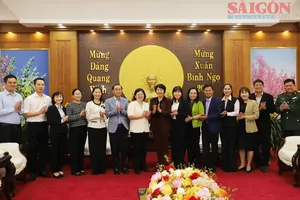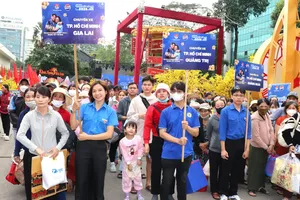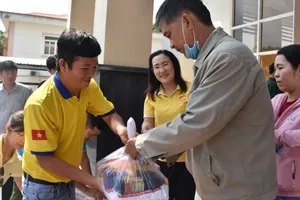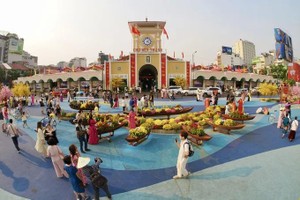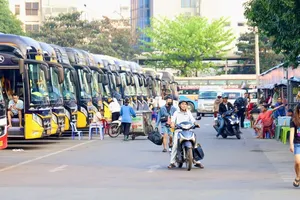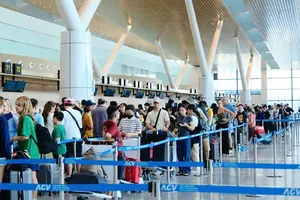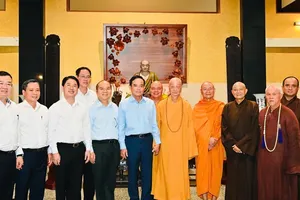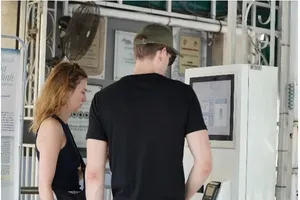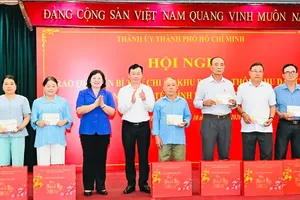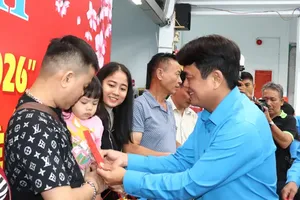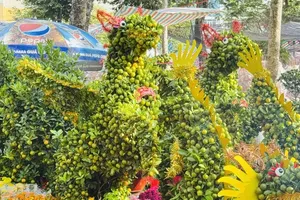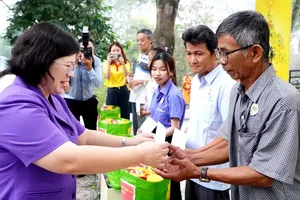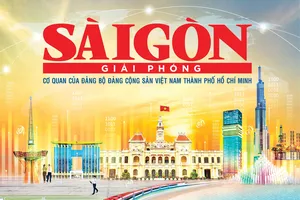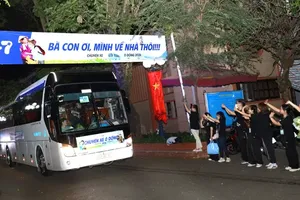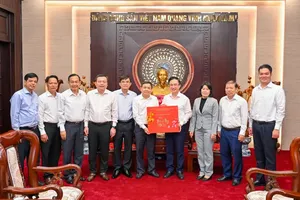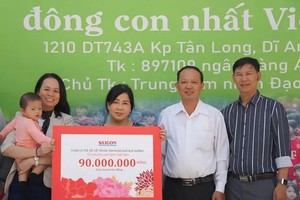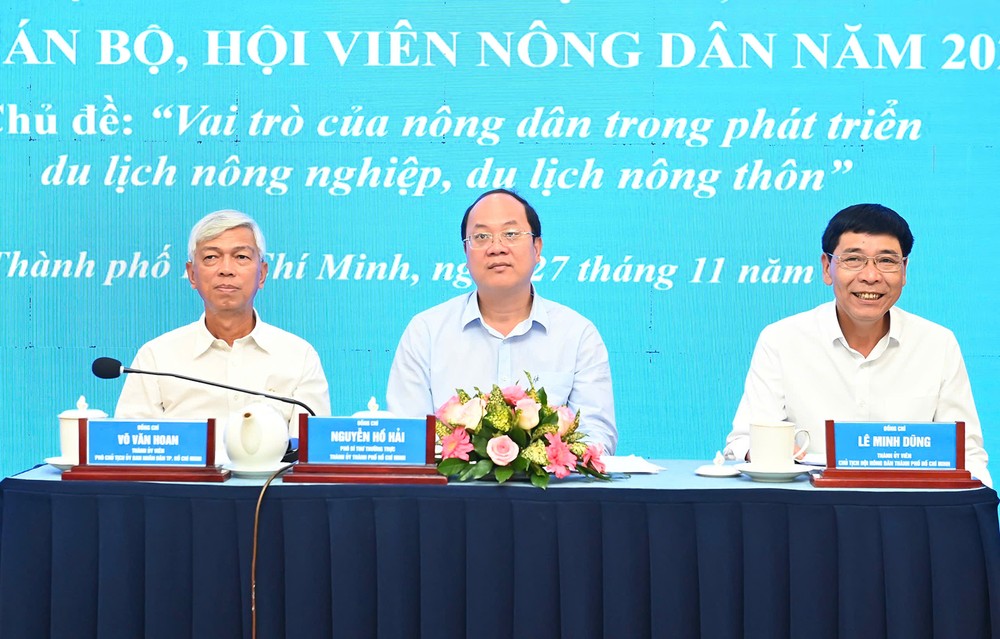
The Ho Chi Minh City People's Committee yesterday organized a program for city leaders to meet and dialogue with officials and members of the Ho Chi Minh City Farmers' Association in 2024 with the theme "The role of farmers in developing agricultural tourism and rural tourism in Ho Chi Minh City".
At the program, representatives from the farmers' associations of five districts namely Cu Chi, Can Gio, Binh Chanh, Hoc Mon, and Nha Be presented to HCMC leaders on the potential for agricultural and rural tourism, emphasizing the districts' distinct geographic, cultural, and historical characteristics. According to them, despite these inherent advantages, the development of agricultural tourism is hindered by various obstacles, primarily the construction of ancillary facilities.
Vice Chairman of the farmers' association of Can Gio District Dang Van Ut expressed that the district possesses significant potential for agricultural and rural tourism, particularly in Thieng Lieng Hamlet in Thanh An Island Commune. This area has emerged as a new destination for salt production and local delicacies. Nevertheless, it is currently encountering challenges in developing necessary support facilities for tourists, including areas for product displays, rest stops, and sanitation facilities.
Elsewhere in the city, Nha Be District has recently introduced a distinctive tourism initiative titled ‘Nha Be Thousand and One Nights’ though it is encountering challenges with land use planning for future accommodation, dining, and shopping facilities.
Sympathizing with localities’ difficulties in rural tourism development, Vice Chairman Vo Van Hoan of the municipal People's Committee urged the Ho Chi Minh City Farmers' Association and local districts to confidently pursue tourism projects that align with their specific localities, as long as they have the authority to do so. The Ho Chi Minh City People's Committee will provide guidance and support to localities in overcoming challenges.
The city Vice Chairman emphasized that the city's farmers always strive and aspire to rise up in all circumstances and city leaders always encourage the development of rural tourism so that farmers can make money on their own land.
During the meeting, Standing Deputy Secretary Nguyen Ho Hai of the Ho Chi Minh City Party Committee recognized and commended the accomplishments of the city's farmers over the recent period. He also addressed the challenges faced in the development of rural tourism within Ho Chi Minh City. He noted that despite the successes, there remain several difficulties and shortcomings, particularly in the areas of agriculture, farmers, and rural regions, which do not align with the city's role, status, and potential.
In the coming time, he recommended that the city's agricultural sector continue to restructure and develop agriculture in an ecological and sustainable direction, encouraging the development of multi-value agriculture.
According to him, the National Assembly-approved Resolution 98 specifically addresses the implementation of various mechanisms and policies aimed at the development of Ho Chi Minh City. This resolution will serve as a guide for formulating policies that promote the restructuring of urban agriculture, as well as policies that facilitate the connection between the production and consumption of agricultural products within the city.
The Standing Deputy Secretary of the municipal Party Committee urged the leaders of the Ho Chi Minh City Farmers' Association to continue proposing effective solutions for the implementation of the Resolution No. 19 on agriculture and rural development by 2030 and vision to 2045, the Standing Committee of the Ho Chi Minh City Party Committee’s action program No. 28, 29 along with advising on the Government’s decree No. 37 regarding the establishment and operation of Farmers' Support Fund.
He advocated for the strengthening of communication and promotion efforts for agricultural and rural tourism products, particularly through mass media, fairs, and seminars.
